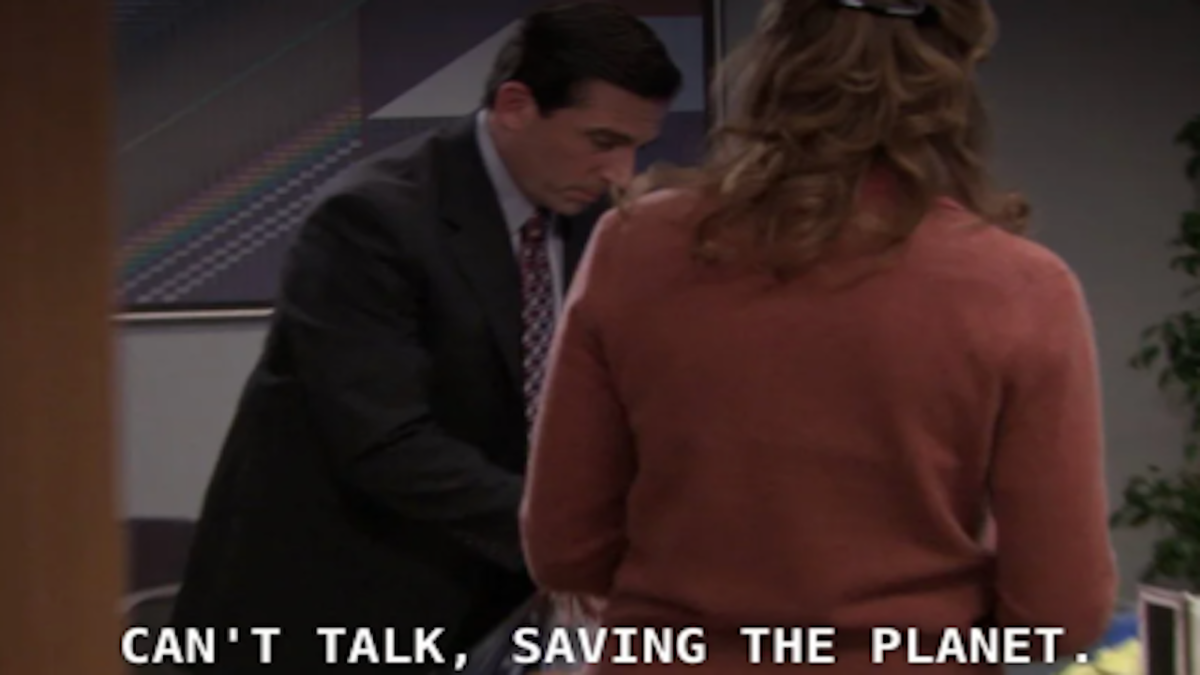
This week I learnt a not-so-fun fact. It was so terrible, it should be called a miserable fact. The fact was that by 2050, it’s estimated that plastic in the oceans will outweigh fish. Outweigh fish. It’s enough to make anyone want to run away to a farm and never consume anything ever again.
Clearly, we have a problem. As well as the single-use plastic that ends up in landfill, Australia also has an electronic waste issue.
According to the Global E-Waste Monitor 2020 report, e-waste (like discarded phones, computers and TVs) increased by 21 per cent in the five years to 2019. It’s predicted that by 2030, higher consumption rates, shorter lifecycles and limited repair options will mean the figure will double. Told you it was bloody grim.
However, there are some absolute gems in this world who are helping to reduce the problem. One of them is Tony Sharp, the founder of the initiative, Substation33. The social enterprise has operated in Kingston, Queensland since 2012 and addresses the increasing amount of electronic items ending up in landfills.
Substation33 has recently partnered with Containers for Change to get even more plastic out of the oceans and landfill. Containers for Change is a recycling scheme where for every (eligible) container you recycle at a container refund point, you’ll receive 10 cents. Cheers to the change-makers, right?
As well as recycling, repurposing and reducing e-waste, Substation33 also provides a workplace where people who’ve been out of the workforce or are from marginalised communities can gain confidence and skills to transition into full-time employment. Legends.
To learn more about this iconic initiative, we spoke with Tony Sharp to understand why he started a multi-purpose enterprise.
Hi, Tony. What made you want to start Substation33?
The vision was to create volunteering and employment opportunities for people otherwise marginalised from employment. What we have now learnt is that the rhythm of work is key to a person’s ongoing employability skill set.
Were you involved in waste management before founding this organisation?
Actually no. I spent over five years owning and operating heavy machinery contracted to a large landfill site in South East Queensland. This framed my desire to reduce the amount of valuable resources ending up in landfill. At that stage in my life I never fully understood what effect that mindless consumerism and consumption had on me.
What kinds of employment opportunities are available at Substation33?
We have a wide range of volunteering and employment opportunities on offer at Substation33. E-waste dismantling, collection and logistics, software and hardware development, and onsite construction.
In the last couple of months we’ve introduced a new suite of paid employment positions through our partnership with Containers for Change. Our initiative now operates seven days per week and offers a wide variety of shift opportunities.
View this post on Instagram
In 2021 you began a partnership with Containers for Change. How are you and Containers for Change reducing container waste?
The partnership has resulted in us sorting 12 million containers in just 200 days of opening our new facility. This has also created 30 paid employment positions and changed the conversation about the value of the recycling scheme in our local community.
Why is this partnership so well-suited?
This partnership is perfectly suited to our purpose; creating entry level, paid employment positions and allowing people to experience the rhythm of work in a safe and supported workplace.
For us, this aligns perfectly with the idea of Containers for Change. Not only does this partnership make an environmental change, it also makes a significant social change through the employment of people otherwise marginalised from work opportunities.
View this post on Instagram
Every year Substaion 33 saves about 200 tonnes of e-waste from ending up in landfill. What does that waste become?
We have repurposed over 4500 computers and distributed them into our local community, in order to narrow the ever-increasing digital divide. E-waste, in general, re-enters the commodity streams to be remanufactured into raw products. We also build commercial products from this recycling activity.
What’s something not many people know about e-waste?
Australia is among the highest producers of e-waste in the world, ranked the 5th top producer with 21.7Kgs of waste per person produced in 2019. Less than 1/5 is recycled globally, although this varies by region. Only 17.4% of total global e-waste is known to have been collected and properly recycled.
Head to Substation33 and Containers for Change to learn more about these change-makers.



